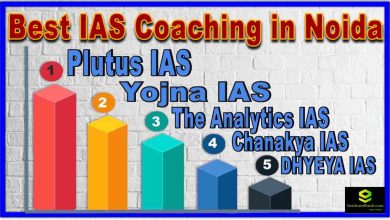Can I complete History and Culture in 1 month for UPSC IAS exam?

Completing History and Culture for the UPSC IAS exam in just one month is a daunting task, but with a well-planned strategy and dedication, it’s achievable. To make the most of this short time frame, it’s essential to create a structured plan and stick to it.
First, start by understanding the route you need to take to cover the entire syllabus of History and Culture. This means thoroughly going through the UPSC syllabus and identifying the key topics and areas that need to be focused on. You can think of this step as opening Google Maps to understand the route to Dholpur House, except in this case, you’re navigating the vast terrain of History and Culture.

Once you have a clear understanding of the syllabus, break down your study plan into manageable chunks. Allocate specific topics to each day, ensuring that you cover all the essential areas within the given time frame. Be realistic about how much you can cover in a day, and don’t overload yourself with too much information.
see – best ias coaching in delhi
For first-time aspirants, aiming to complete one round of study is a reasonable goal. This means that you’ll focus on understanding the basics of each topic, rather than delving deep into intricate details. As you progress, you can refine your knowledge and add more depth to your understanding.
To make the most of your study plan, identify potential obstacles that might hinder your progress. This could include topics that you’re not familiar with, or areas that require more time and attention. Develop strategies to overcome these obstacles, such as seeking help from online resources, study groups, or mentors.

Time management is critical in this one-month preparation period. Allocate your time wisely, ensuring that you dedicate sufficient hours to each topic. Create a schedule that allows for regular breaks, revision, and practice tests to reinforce your learning.
Read,

To complete the History and Culture syllabus for the UPSC IAS exam within a span of just one month, it’s essential to have a strategic approach and a reliable resource to guide you through the process. This is where Plutus IAS coaching comes into the picture, renowned for its expertise in helping aspirants crack the prestigious exam.
Here’s a suggested plan to complete History and Culture in 1 month with Plutus IAS:
Week 1: Ancient Indian History
Start by covering the ancient period of Indian history, from the Indus Valley Civilization to the Gupta Empire.
Focus on the key features of each empire, their administrative systems, and significant contributions to Indian culture.
Utilize Plutus IAS’s study materials, video lectures, and online classes to grasp the concepts thoroughly.
Allocate 4-5 hours daily to study and revise the topics.
Week 2: Medieval Indian History
Move on to the medieval period, which includes the Delhi Sultanate, Mughal Empire, and the rise of regional kingdoms.
Study the social, economic, and cultural developments during this period, including the impact of Muslim rule on Indian society.
Plutus IAS’s expert faculty will provide guidance on how to approach the complex topics and help you understand the nuances of medieval history.
Continue to allocate 4-5 hours daily to study and revise.
Read also
- Top IAS Coaching in Indore
- best ias coaching in hyderabad
- best ias coaching in patna
- best ias coaching in Bangalore
- Best IAS Coaching in Chandigarh
- Best IAS Coaching in Noida
- Best IAS Coaching in Ghaziabad
Week 3: Modern Indian History and Culture
Focus on the modern period of Indian history, including the Indian freedom struggle, the national movement, and the country’s struggle for independence.
Study the cultural developments during this period, including the contributions of prominent Indians to the field of art, literature, and music.
Plutus IAS’s study materials will provide you with in-depth analysis and insights into the modern period, enabling you to understand the complexities of Indian history and culture.
Allocate 4-5 hours daily to study and revise.
Week 4: Revision and Practice
Spend the last week revising and practicing all the topics covered in the previous weeks.
Focus on practicing mock tests and previous year’s question papers to improve your writing skills and time management.
Plutus IAS’s online test series and mock tests will help you assess your knowledge and identify areas that need improvement.
Allocate 4-5 hours daily to practice and revise.
Additional Tips on Can I complete History and Culture in 1 month for UPSC IAS exam?
Make a schedule and stick to it to ensure you complete the syllabus within the given timeframe.
Attend Plutus IAS’s online classes and video lectures regularly to stay motivated and guided.
Revise regularly and practice writing answers to improve your writing skills.
Focus on understanding the concepts rather than just memorizing facts.
By following this plan and utilizing Plutus IAS’s resources, you can complete the History and Culture syllabus for the UPSC IAS exam within a month. Remember to stay focused, motivated, and committed to your goals, and you’ll be well-prepared to tackle the exam.
In conclusion, completing History and Culture in one month for the UPSC IAS exam requires a well-structured plan, dedication, and perseverance. By understanding the syllabus, breaking down your study plan into manageable chunks, and overcoming obstacles, you can achieve your goal and set yourself up for success in the exam. Remember, this is just the first step in your UPSC journey, and with persistence and hard work, you can continue to build on your knowledge and achieve your goals.

